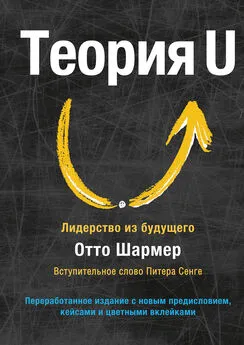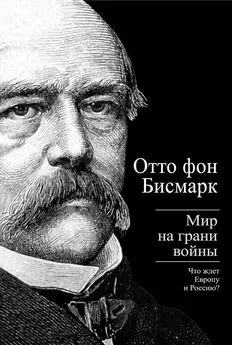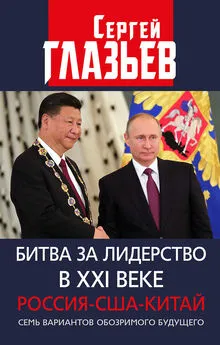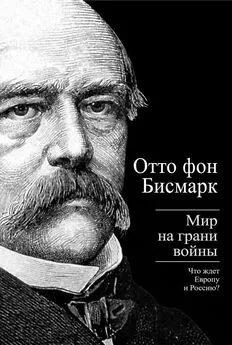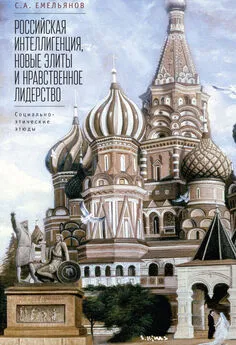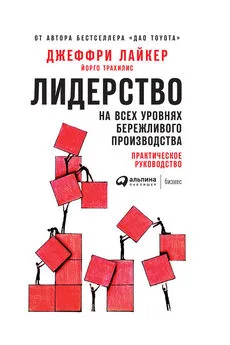Отто Шармер - Теория U. Лидерство из будущего
- Название:Теория U. Лидерство из будущего
- Автор:
- Жанр:
- Издательство:Литагент МИФ без БК
- Год:2019
- Город:Москва
- ISBN:978-5-00117-457-8
- Рейтинг:
- Избранное:Добавить в избранное
-
Отзывы:
-
Ваша оценка:
Отто Шармер - Теория U. Лидерство из будущего краткое содержание
Эта книга написана для лидеров и активных сторонников изменений в корпорациях, правительствах, неправительственных организациях и сообществах.
На русском языке публикуется впервые.
Теория U. Лидерство из будущего - читать онлайн бесплатно ознакомительный отрывок
Интервал:
Закладка:
Argyris, Chris, and Donald Schön. 1995. Organizational Learning II: Theory, Method and Practice. 2nd ed. Englewood Cliffs, NJ: Prentice Hall.
Argyris, Chris. Robert Putnam, and Diana McLain Smith. 1985. Action Science: Concepts, Methods, and Skills for Research and Intervention. San Francisco: Jossey-Bass.
Aristotle. 1985. Nicomachean Ethics. Translated by Terence Irwin. Indianapolis and Cambridge, U.K.: Hackett.
Arthur, Brian. 1999. Interview with W. Brian Arthur conducted by Claus Otto Scharmer, transcript, April 16th, 1999. “Coming From Your Inner Self”. https://www.presencing.org/dol/arthur.
Arthur, Brian. 1996. “Increasing Returns and the New World of Business.” Harvard Business Review 74, no. 4: 100–109.
Atlee, Tom. 2003. The Tao of Democracy: Using Co-intelligence to Create a World That Works for All. Cranston, RI: Writers’ Collective.
Austin, Rob, and Lee Devin. 2003. Artful Making: What Managers Need to Know About How Artists Work. Upper Saddle River, NJ: Financial Times – Prentice Hall.
Bache, Christopher M. 2000. Dark Night, Early Dawn: Steps to a Deep Ecology of Mind. Albany: State University of New York.
Barnard, Chester I. 1938. The Functions of the Executive. Cambridge, MA, and London: Harvard University Press.
Bateson, Gregory. 1999. Steps to an Ecology of Mind. Chicago and London: University of Chicago Press.
Batstone, David. 2003. Saving the Corporate Soul. San Francisco: Jossey-Bass.
Beck, Don E., and Christopher C. Cowan. 1996. Spiral Dynamics: Mastering Values, Leadership, and Change. Malden, MA: Blackwell Business.
Beck, U., A. Giddens, and S. Lash, 1996. Reflexive Modernization: Politics, Tradition and Aesthetics in the Modern Social Order. Cambridge: Polity Press.
Beck, U., A. 1986. Risikogesellschaft. Auf dem Weg in eine andere Moderne. Frankfurt am: Suhrkamp.
Beckhard, Richard, and Reuben T. Harris. 1987. Organizational Transitions: Managing Complex Change. 2nd ed. Reading, MA: Addison-Wesley.
Benedikter, Roland, ed. 1997. Wirtschaft und Kultur im Gespräch: Zukunftsperspektiven der Wirtschaftskultur. Meran: Alpha & Beta Verlag.
Bennis, Warren. 1989. On Becoming a Leader. Reading, MA: Addison-Wesley.
Berger, Peter L., and Thomas Luckmann. 1967. The Social Construction of Reality: A Treatise in the Sociology of Knowledge. New York: Doubleday.
Bernasconi, Robert. 1993. Heidegger in Question: The Art of Existing. Atlantic Highlands, NJ: Humanities Press.
Beuys, Joseph. 2004. What Is Art? Edited by Volker Harlan. Translated by Matthew Barton and Shelly Sacks. Stuttgart: Verlag Freies Geistesleben & Urachhaus.
Block, Peter. 1993. Stewardship: Choosing Service Over Self-Interest. San Francisco: Berrett-Koehler.
Bohm, David. On Dialogue. 1996. Edited by Lee Nichol. London: Routledge.
Bohm, David. 1994. Thought as a System. London and New York: Routledge.
Bohm, David. 1983. Wholeness and the Implicate Order. London and New York: ARK Paperbacks.
Bond, Patrick. 2004. Talk Left, Walk Right: South Africa’s Frustrated Global Reforms.
Scottsville: University of KwaZulu-Natal Press.
Bortoft, Henri. 1999. All quotes can be found in this interview transcript: https://www.presencing.org/dol/bortoft.
Bortoft, Henri. 1996. Wholeness of Nature: Goethe’s Way of Science. Edinburgh: Floris.
Brand, Stewart. 1988. The Media Lab: Inventing the Future at M.I.T. New York: Penguin.
Brown, John Seely, Alan Collins, and Paul Duguid. 1989. “Situated Cognition and the Culture of Learning,” Educational Researcher 18, no. 1 (January – February), pp. 32–42.
Brown, Juanita, David Isaacs, and the World Café Community. 2005. The World Café: Shaping Our Futures Through Conversations that Matter. San Francisco: Berrett-Koehler.
Brunnhuber, Stefan, and Harald Klimenta. 2003. Wie wir Wirtschaften werden: Szenarien und Gestaltungsmoglichkeiten für zukunftsfühige Finanzmärkte. Frankfurt: Redline Wirtschaft Ueberreuter.
Buber, Martin. 2000. I and Thou. First Scribner Classics Edition. New York: Scribner.
Bushe, Gervase R., and Abraham B. Shani. Parallel Learning Structures: Increasing Innovation in Bureaucracies. Reading, MA: Addison-Wesley.
Campbell, Joseph, with Bill Moyers. 1991. The Power of Myth. Edited by Betty Sue Flowers. New York: Anchor.
Capra, Fritjof. 2002. The Hidden Connections: Integrating the Biological, Cognitive, and Social Dimensions of Life into a Science of Sustainability. New York: Doubleday.
Carr, Nicholas G. 2003. “IT Doesn’t Matter.” Harvard Business Review 81, no. 5: 41.
Carter, Robert E. 1997. The Nothingness Beyond God: An Introduction to the Philosophy of Nishida Kitaro. 2nd ed. St. Paul, MN: Paragon House.
Castells, Manuel. 1998. End of Millennium, vol. 3. Oxford: Blackwell.
Castells, Manuel. 1997. Castells, Manuel. The Power of Identity: The Information Age – Economy, Society and Culture. Oxford: Blackwell.
Castells, Manuel. 1996. The Rise of the Network Society. Oxford: Blackwell.
Catford, Lorna, and Michael Ray. 1991. The Path of the Everyday Hero. New York: Tarcher.
Chaiklin, Seth, and Jean Lave, eds. 1993. Understanding Practice: Perspectives on Activity and Context. New York: Cambridge University Press.
Chandler, Dawn, and William R. Torbert. 2003. “Transforming Inquiry and Action: Interweaving Flavors of Action Research.” Action Research 1, no. 2: 133–152.
Chatterjee, Debashis. 1998. Leading Consciously: A Pilgrimage Toward Self-Mastery. Boston: Butterworth-Heinemann.
Childre, Doc, and Bruce Cryer. 1998. From Chaos to Coherence: Advancing Emotional and Organizational Intelligence Through Inner Quality Management. Boston: Butterworth Heinemann.
Chrislip, David D. 2002. The Collaborative Leadership Fieldbook: A Guide for Citizens and Civic Leaders. San Francisco: Jossey-Bass.
Christensen, Clayton M. 1997. The Innovator’s Dilemma: When New Technologies Cause Great Firms to Fail. Boston: Harvard Business School Press.
Clegg, Stewart R., Cynthia Hardy, and Walter R. Nord, eds. 1996. Handbook of Organization Studies. London: Sage.
Coase, R. H. 1998. The Firm, The Market, and the Law. Chicago and London: University of Chicago Press.
Coleman, James S. 1998. “Social Capital in the Creation of Human Capital.” American Journal of Sociology 94: S95–S120.
Collin, Finn. Social Reality. 1997. London and New York: Routledge.
Collins, Jim. 2001a. Good-to-Great: Why Some Companies Make the Leap … and Others Don’t. New York: HarperBusiness.
Collins, Jim. 2001b. “Level 5 Leadership: The Triumph of Humility and Fierce Resolve,” Harvard Business Review 75, no. 1: 66.
Collins, Jim and Jerry I. Porras. 1994. Built to Last: Successful Habits of Visionary Companies. New York: HarperBusiness.
Confucius. 1971. Confucian Analects, The Great Learning & the Doctrine of the Mean. Translated by James Legge. New York: Dover.
Cooperrider, David L., Peter F. Sorensen, Jr., Diana Whitney, and Therese F. Yaeger, eds. 2000. Appreciative Inquiry: Rethinking Human Organization Toward a Positive Theory of Change. Champaign, IL: Stipes.
Csikszentmihalyi, Mihaly. 1996. Creativity: Flow and the Psychology of Discovery and Invention. New York: HarperPerennial.
Csikszentmihalyi, Mihaly. 1993. The Evolving Self. New York: HarperPerennial.
Csikszentmihalyi, Mihaly. 1990. Flow the Psychology of Optimal Experience. New York: HarperCollins.
Cusumano, Michael A., and Kentaro Nobeoka. 1998. Thinking Beyond Lean: How Multi-Project Management Is Transforming Product Development at Toyota and Other Companies. New York: Free Press.
Dalai Lama. 2003. Estructive Emotions: How Can We Overcome Them? Narrated by Daniel Goleman. New York: Bantam.
Daly, Herman E. 1996. Beyond Growth: The Economics of Sustainable Development. Boston: Beacon Press.
Daly, Herman E. and Kenneth N. Townsend, eds. 1993. Valuing the Earth: Economics, Ecology, Ethics. Cambridge, MA, and London: MIT Press.
Darsø, Lotte. 2004. Artful Creation: Learning-Tales of Arts-in-Business. Frederiksberg, Denmark: Samfundslitteratur. de Geus, Arie. 1997. The Living Company. Boston: Harvard Business School Press.
Delantey, Gerard. 1997. Social Science: Beyond Constructivism and Realism. Minneapolis: University of Minnesota Press.
Depraz, Natalie, Francisco J. Varela, and Pierre Vermersch. 2000. “The Gesture of Awareness, an Account of Its Structural Dynamics.” In Investigating Phenomenological Consciousness: New Methodologies and Maps. Edited by Max Velmans. Amsterdam: Benjamin Publishers.
Depraz, Natalie, eds. 2003. On Becoming Aware: A Pragmatics of Experiencing (Advances in Consciousness Research). Amsterdam: Benjamin.
Dossey, Larry. 2003. Healing Beyond the Body: Medicine and the Infinite Reach of the Mind. Boston: Shambhala.
Dossey, Larry. 1999. Reinventing Medicine: Beyond Mind-Body to a New Era of Healing. San Francisco: HarperSanFrancisco.
Dreher, Walther. 1997. Denkspuren: Bildung von Menschen mit geistiger Behinderung– Basis einer integralen Pädagogik. Aachen, Germany: Verlag Mainz.
Eccles, Robert G., et al. 2001. The ValueReporting Revolution: Moving Beyond the Earnings Game. Hoboken, NJ: John Wiley.
Eccles, Robert G., and Nitin Nohria. 1992. Beyond the Hype: Rediscovering the Essence of Management. Boston: Harvard Business School Press.
Edvinsson, Leif, and Michael S. Malone. 1997. Intellectual Capital: Realizing Your Company’s True Value by Finding Its Hidden Brainpower. New York: HarperBusiness.
Eichenwald, Kurt. 2005. Conspiracy of Fools: A True Story. New York: Broadway Books.
Elias, Norbert. 1978, The Civilizing Process. The History of Manners. Translation from German by Edmund Jephcott of über den Prozess der Zivilisation. Soziogenetische und psychogenetische Untersuchungen, Vol. 1. Oxford, Blackwell/New York: Urizen Books.
Elkington, John. 1998. Cannibals with Forks: The Triple Bottom Line of 21st Century Business. Gabriola, Canada: New Society.
Enriquez, Juan. 2000. As the Future Catches You: How Genomics & Other Forces Are Changing Your Life, Work, Health & Wealth. New York: Crown Business.
Eschenbach, Wolfram von. 1980. Parzival. Translated by A. T. Hatto. London: Penguin.
Fichte, Johann Gottlieb. 1994. Introductions to the Wissenschaftslehre and Other Writings. Translated and edited by Daniel Breazeale. Indianapolis and Cambridge, U.K.: Hackett.
Fichte, Johann Gottlieb et al. 1982. The Science of Knowledge: With the First and Second Introductions (Texts in German Philosophy). Edited and translated by Peter Heath and John Lachs. Cambridge, U.K.: Cambridge University Press.
Fisher, Dalmar, and William R. Torbert. 1995. Personal and Organizational Transformations: The True Challenge of Continual Quality Improvement. London: McGraw-Hill.
Fiumara, Gemma Corradi. 1990. The Other Side of Language: A Philosophy of Listening. Translated by Charles Lambert. London and New York: Routledge.
Fleck, Ludwig. 1994. Entstehung und Entwicklung einer wissenschaftlichen Tatsache. Frankfurt am Main: Suhrkamp.
Flores, Fernando. 1982. “Management and Communication in the Office of the Future.” Ph.D. dissertation, University of California, Berkeley.
Florida, Richard. 2002. The Rise of the Creative Class: And How It’s Transforming Work, Leisure, Community and Everyday Life. New York: Basic Books.
Foster, Richard, and Sarah Kaplan. 2001. Creative Destruction: Why Companies That Are Built to Last Underperform the Market – and How to Successfully Transform Them. New York: Currency.
Frick, Don M. 2004. Robert K. Greenleaf: A Life of Servant Leadership. San Francisco: Berrett-Koehler.
Читать дальшеИнтервал:
Закладка:
